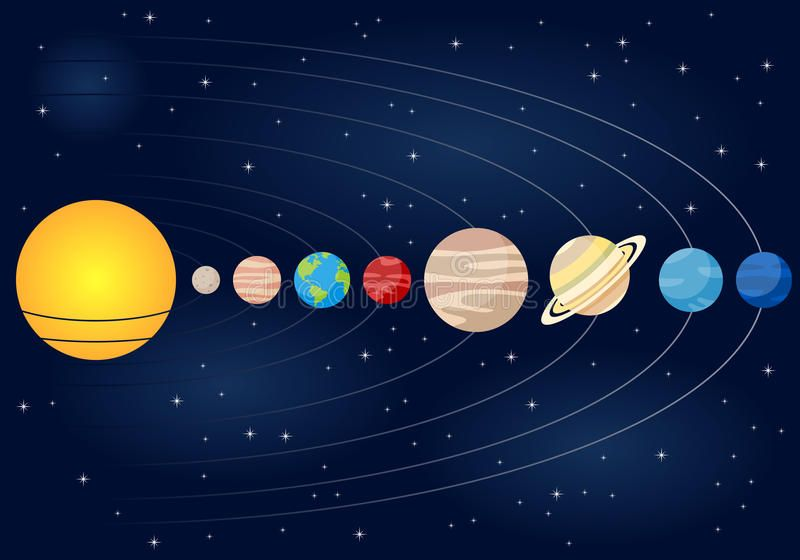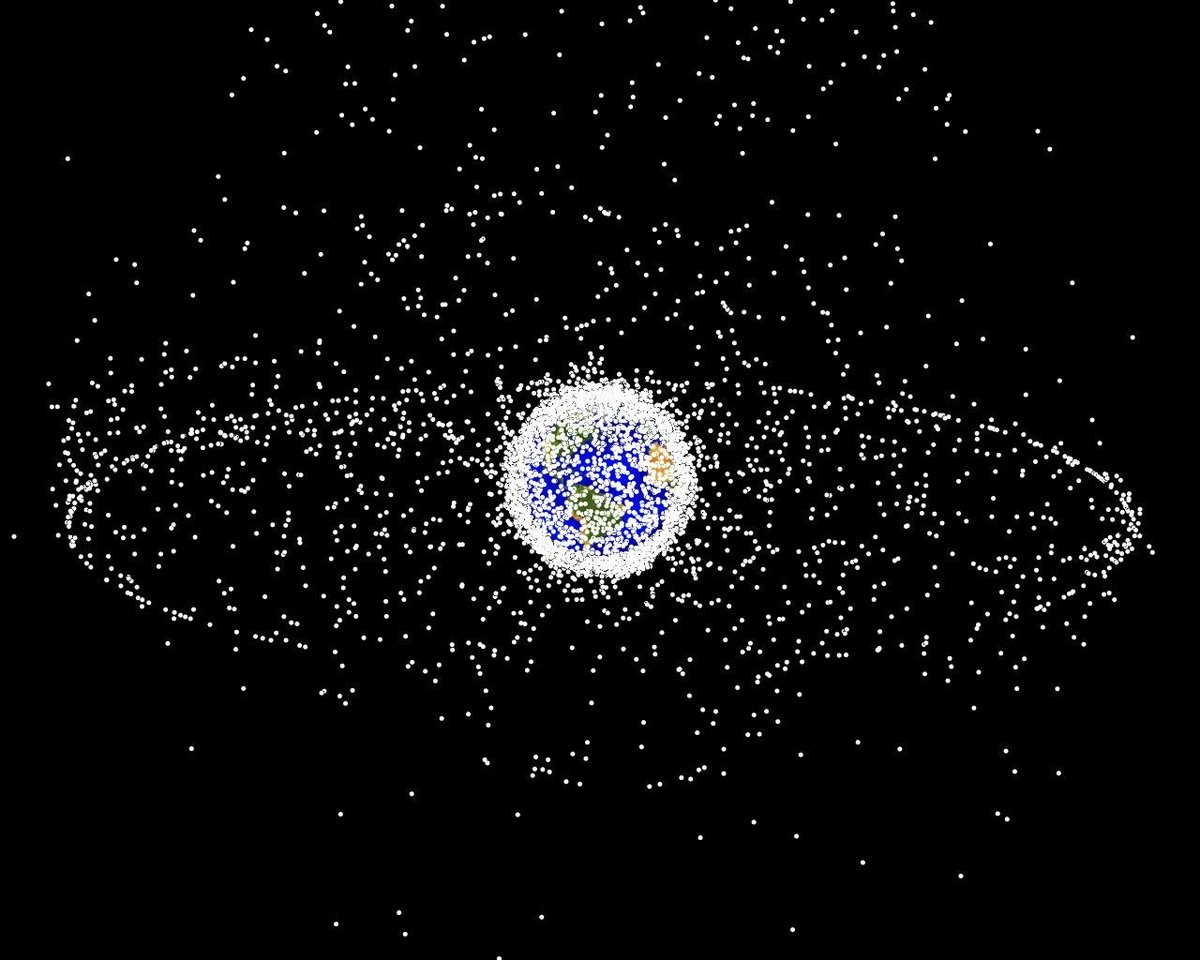Since @davidavalerio and @dmcdougall hosted their excellent @interintellect_ salon yesterday on humans becoming a multiplanetary species, I've been thinking about *why* this is so interesting.
Short answer: because it forces you to define what you think is important.
Thread:
Short answer: because it forces you to define what you think is important.
Thread:
1/ NOTE: This is still the case regardless of your opinion on whether it's technologically achievable, whether it's morally advisable to go, whether it's morally advisable NOT to go, etc etc. It comes down to summarising your vision of an ideal society.
2/ Let's begin with "technologically achievable". It may be dryly understating the case to say that even *reaching* Mars is a tad tricky. We often still think of planetary orbits like this:
3/ Of course, it's nothing of the sort, and looks much more like this. Everything is shifting in relation to each other all the time, and the calculations required to line up the trajectory to Mars is, at best, a headache. At the bare minimum, it's a six-month trip.
4/ During those six months, and the entire sojourn on Mars, the slightest of mishaps could be fatal. There's a puncture in the oxygen tank? You die. Run out of water? Die. Run out of food and can't grow it fast enough? Die. Seriously hard to overestimate the breaking points here.
5/ The general point is that it's really really really hard to get there in the first place, never mind *sustain* life. I mean, you might think that it's difficult to get out of bed on Monday mornings, and you might be right, but even that pales in comparison to getting to Mars.
6/ Perhaps the most interesting thing about humans setting up on Mars is that it would be one of the few times when everything is being constructed from scratch with pretty much a blank slate. On top of that, virtually everything we're used to would be thrown into question.
7/ Simple but under-discussed example: the Martian "sol" is 24 hours and 39 minutes compared to Earth's "day" of 24. How would our chronobiology be affected over time by this? Is a prelim experiment even replicable on Earth? Would the concept of a "month" soon become meaningless?
8/ No real-time communication with Earth. If you want to speak to loved ones, there'll be a minimum of a 6-minute delay (at the speed of light, 3 minutes there, 3 minutes back). You can forget about FaceTime. Communication would be permanently asynchronous. Sorry, it's physics.
9/ What about the structure of governance? Would it be a democracy? A "benevolent dictatorship" (think LKY of Singapore)? A malignant dictatorship?
Would there be any parallel with Earthbound countries? Would existing countries (US/Russia/China) claim jurisdiction there?
Would there be any parallel with Earthbound countries? Would existing countries (US/Russia/China) claim jurisdiction there?
10/ What might a city look like on Mars? On Earth, cities were usually founded because of some geographical benefit - proximity to water, fertile soil, convenient accessibility to neighbouring states for trade, etc. On Mars, none of that is there. What defines an "advantage" now?
11/ Would it be the case that there would be multiple "siloes" of societies? Would you have Anarchytown, Libertariansville, Democracy City, each in their own cluster and people free to move between them? Or would there be a more coherent whole?
12/ What about the notion of a societal culture? The size of a village makes its culture quite easily defined. Within a large city, different districts have different cultures. Countries can also have a loose culture, but beyond that size, the concept starts to break down.
13/ Which brings us to another point: given the arguments above, it's hard to argue for the coherence of a concept such as the "culture of Earth". In that respect, the "culture of Mars" would likely not be coherent and would remain isolated to the specific culture of the settlers
14/ What would living on Mars actually look like? At first, it would be temporary housing structures, outside of which life would be impossible. Then what? Cities? Would they be constructed under a dome? Would everyone be limited to wearing spacesuits when outside?
15/ Long-term terraforming *might* be an option, but given our current difficulties with something as clearly-defined as carbon removal, I think it's safe to say that's probably quite a while off. Also, the most conservative estimate is thousands of years, ranging to millions.
16/ There's also the question of whether it's morally correct to try to terraform another planet. Another interesting point was raised in the salon: even if we could definitively prove that there was, and had been, no life on Mars, is it still okay to violently transform it?
17/ What would the Martian population look like? The immediate answer is that it would, at least initially, be populated only by the people who were wealthy enough to afford the ticket. I'm curious about whether a concept like wealth even makes sense once you're on Mars.
18/ On Earth, you'd have access to luxury shopping, travel to different countries, have multiple homes in fancy locations, etc. On Mars, you'd be living with a handful of others in a radiation-filled murder desert with no air & a temp of -100F (-73 C). What are the incentives?
19/ But the interesting thing about potentially starting a society on Mars from scratch is that it forces us to confront our own notions of what we *already* value here on Earth. Furthermore, it forces you to be precise in your definitions of that importance.
20/ For example, I want to live in a world rich in abundance, where nobody dies in poverty, where healthcare is convenient and effective, with a happy, highly-educated populace free of conflict and busy with furthering progress and making the world a better place. Fine, right?
21/ But what does that actually mean? Which policies actually enable these developments? Some ideas sound great in theory but are actually either ineffective or downright counterproductive in practice. Can we test those? Are there historical examples? Can you disprove your ideas?
22/ What is it, exactly, about quote-unquote "culture" that you value, exactly? Religion? Music? What about scientific progress? Could you envision a new world without art? Without God? How, precisely, does this differ across countries A, B, C and D, and why?
23/ It can help a little to understand fundamental economic concepts such as supply and demand, economies of scale, division of labour, but we also need to understand biases in human psychology, such as hindsight bias, trust, confirmation bias, etc.
24/ Unfortunately, these are not separable, and all of them interact in a giant interlinked web of difficult-to-predict second- and third-order amorphous consequences. Changing A can change B, but it may also unexpectedly change X, Y and Z, and where the hell is Q now?
25/ Doing this kind of thinking can feel extremely awkward because we often don't know *why* we think what we do. E.g. - Why do we like democracy? Don't people get things wrong a lot? Is there a better way? Do faults in a system mean it's unworkable? How can we improve?
26/ Disclaimer: I'm obviously not trashing democracy, but it's interesting to ponder alternatives as a thought experiment. If our systems of governance were set up to manage large numbers of existing people with the least compromise, what happens when starting from scratch?
27/ I do think that the idea of extending beyond Earth as a "backup plan" of sorts is a valid one. Asteroids, megavolcanoes, nuclear war, solar storms which could knock out everything electronic, pandemics - it does seem irresponsible not to have humans elsewhere, too.
28/ But is Mars the best option? What about additional space stations? A base on the Moon? (it's *much* closer!) What about going further afield to somewhere like Titan? (Maybe scratch that for the time being - it's a seven-year trip, minimum)
29/ What about space litter? It's a serious question. At high speeds, even tiny debris can cause catastrophic damage. There's already a lot of it - if it gets excessive, are we inadvertently trapping ourselves here, unable to escape?
https://en.wikipedia.org/wiki/Kessler_syndrome
https://en.wikipedia.org/wiki/Kessler_syndrome
30/ Someone also made the interesting point that we are often culturally united by a common enemy.
"Me against my brothers; my brothers and me against my cousins; my cousins, my brothers, and me against strangers."
(Referenced well here by @waitbutwhy) https://waitbutwhy.com/2019/08/giants.html
"Me against my brothers; my brothers and me against my cousins; my cousins, my brothers, and me against strangers."
(Referenced well here by @waitbutwhy) https://waitbutwhy.com/2019/08/giants.html
31/ But the enemy doesn't necessarily have to be a sentient, conscious human. It could be an approaching asteroid, a worldwide drought, or - as we're currently seeing - a pandemic. The one upside we're seeing is a global effort to find better, faster solutions.
32/ So this leaves the obvious question: what are the ways in which we can promote unity *without* necessarily being forced into it by some kind of antagonist?
Getting to Mars is hard. It would require unbelievable progress, close communication, and a sense of unity.
Getting to Mars is hard. It would require unbelievable progress, close communication, and a sense of unity.
33/ Which brings me to my closing point: even if you don't think it's possible (or you do but you wouldn't want to go, like me) --> what should we be thinking about to improve the world right here on Earth and accelerate the rates of progress and human flourishing?
34/ This is why I'm so fascinated by the topic as a whole. There's virtually no part of the human experience that it doesn't touch, whether it's on the hardcore engineering side of things, or debating what it actually is that we like about artistic pursuits.
35/ I'm enjoying the experience of confronting my own opinions - finding out which ones I happened to inherit, versus deriving them for myself. It's giving me a lot to think about in terms of how I choose to spend my life, and what I think is important on a micro and macro level.
36/ Have a think about the same things and see what conclusions you reach. And let me know! Feel free to reply, disagree, add new points, or post a picture of your dog. It's all good. :)
37/ Fin

 Read on Twitter
Read on Twitter




